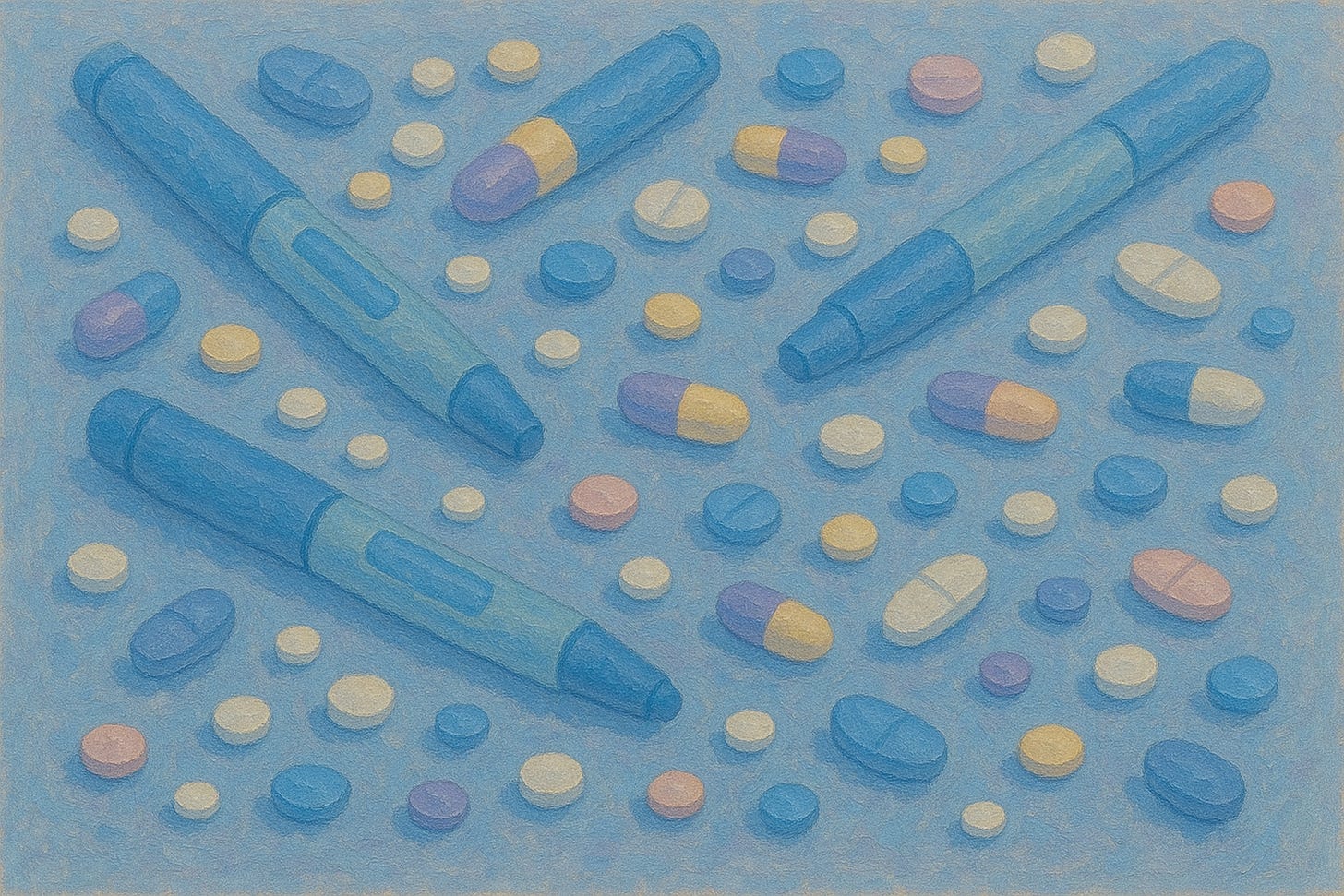Misuse of the patent system keeps our drug costs high
November 18, 2025
Summary: Legal maneuvers by brand name pharmaceutical companies increase the cost of medications in employer-sponsored health plans.
Drug prices are higher in the United States than in all other countries, most of which have national price controls for pharmaceuticals. In the US, drug prices are controlled by competition from generic or biosimilar medications. However, brand name pharmaceutical companies have used legal mechanisms to substantially delay the availability of competing generic and biosimilar medications.
A review in JAMA Health Forum described methods commonly used by drug companies in the U.S. to delay competition. These legal techniques, which they describe as intellectual property abuses, not only increase drug prices. They also draw energy and investment away from innovation.
The categories of misuse of the patent system include:
Patent thickets: Companies have multiple overlapping patents, and generic or biosimilar competitors must litigate each of these before getting Food and Drug Administration (FDA) approval for a competing medication. They point to patents that expire at different times, effectively offering the brand name pharmaceutical company “evergreen” protection against competition.
Product hopping: A company might offer a new formulation shortly before losing patent protection, making it more difficult for prescribers to transition their patients to the generic or biosimilar product when it becomes available. The brand name company can claim additional years of exclusivity by offering a different strength or a drug that is slightly longer acting.
Copyrights: Generic or biosimilar companies must produce consumer education materials that are the same as a brand name drug company. One brand name company sued a generic manufacturer claiming copyright infringement. While the brand name company lost in court, this delayed the availability of the cheaper generic.
Trademarks: Brand name companies trademark the look of their pills, preventing generic companies from copying this. Such prohibitions make it more likely that patients will be confused by new generics, which look substantially different than the brand name pill they replace.
Another common brand name strategy to delay competition:
Restrict access to brand name drugs: Generic and biosimilar manufacturers must demonstrate that their medications are bioequivalent to the brand name drugs. Some brand name companies have restricted potential competitors from gaining access to their medications, making it difficult for generic companies to gain FDA approval.
Implications for employers:
Employers can support reforms that will continue to reward the pharmaceutical industry for innovation but also encourage timely access to generic and biosimilar medications.
Employer demands to make biosimilar drugs available quickly can help make the biosimilar industry successful in the U.S.
Value based insurance designs can help increase adoption of cost-saving generic and biosimilar medications through decreased cost sharing.


Nice summary article of the abuses of pharmaceutical companies when it comes to allowing generic or biosimilar competition.
Jeff i would not characterize this as an abuse of the system by pharma but a flawed system that allows these tactics to exist. Patents are issued when a drug is discovered not when it is released which can have serious repercussions for the pharm developer. But the pricing if GLP-1s is one of the most egregious i have seen. These drugs have been a cost effective way to treat diabetes for years!! And now because of a change in use they are more expensive. Patent laws created this mess and patent laws need to be changed to fix it